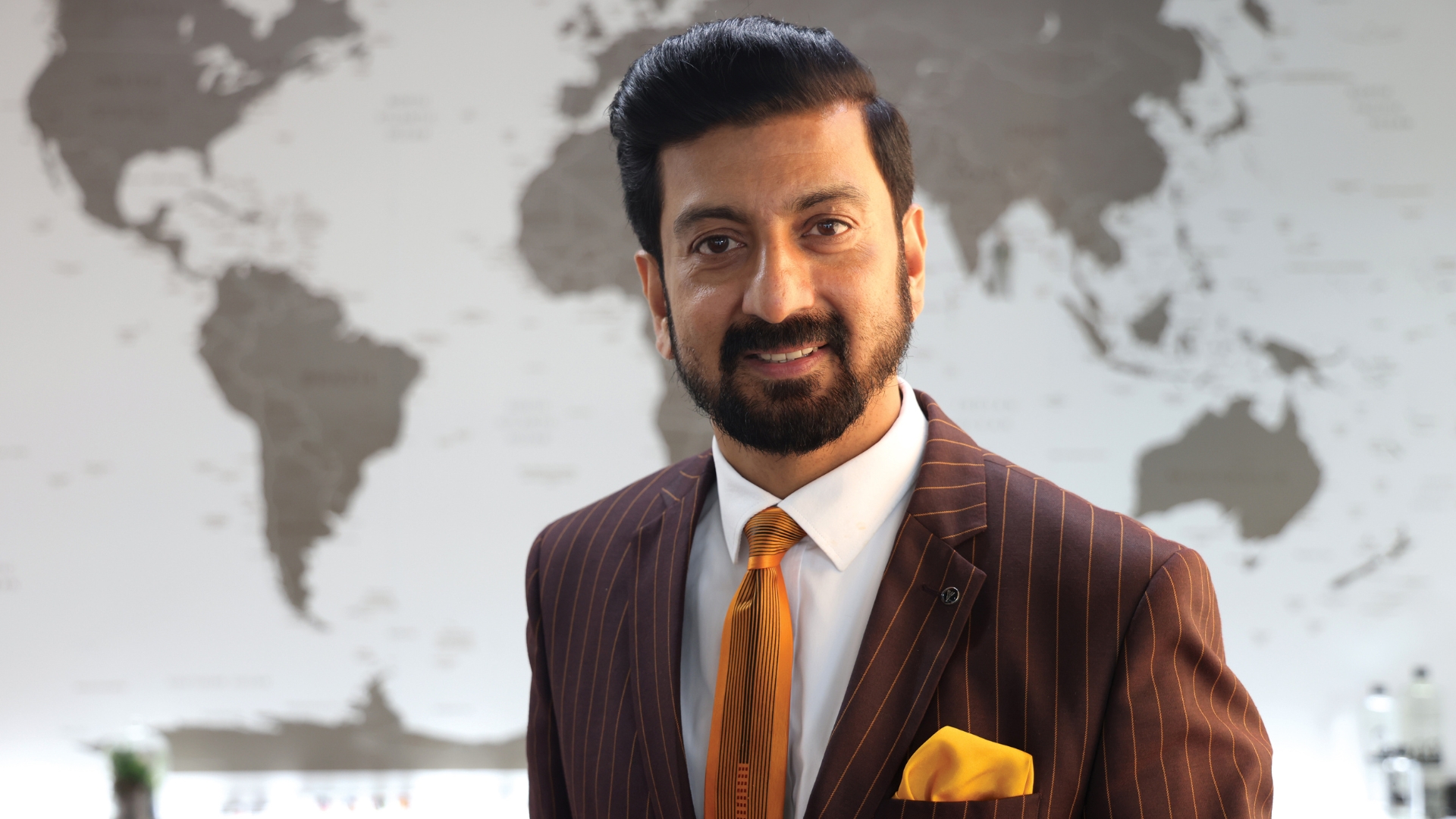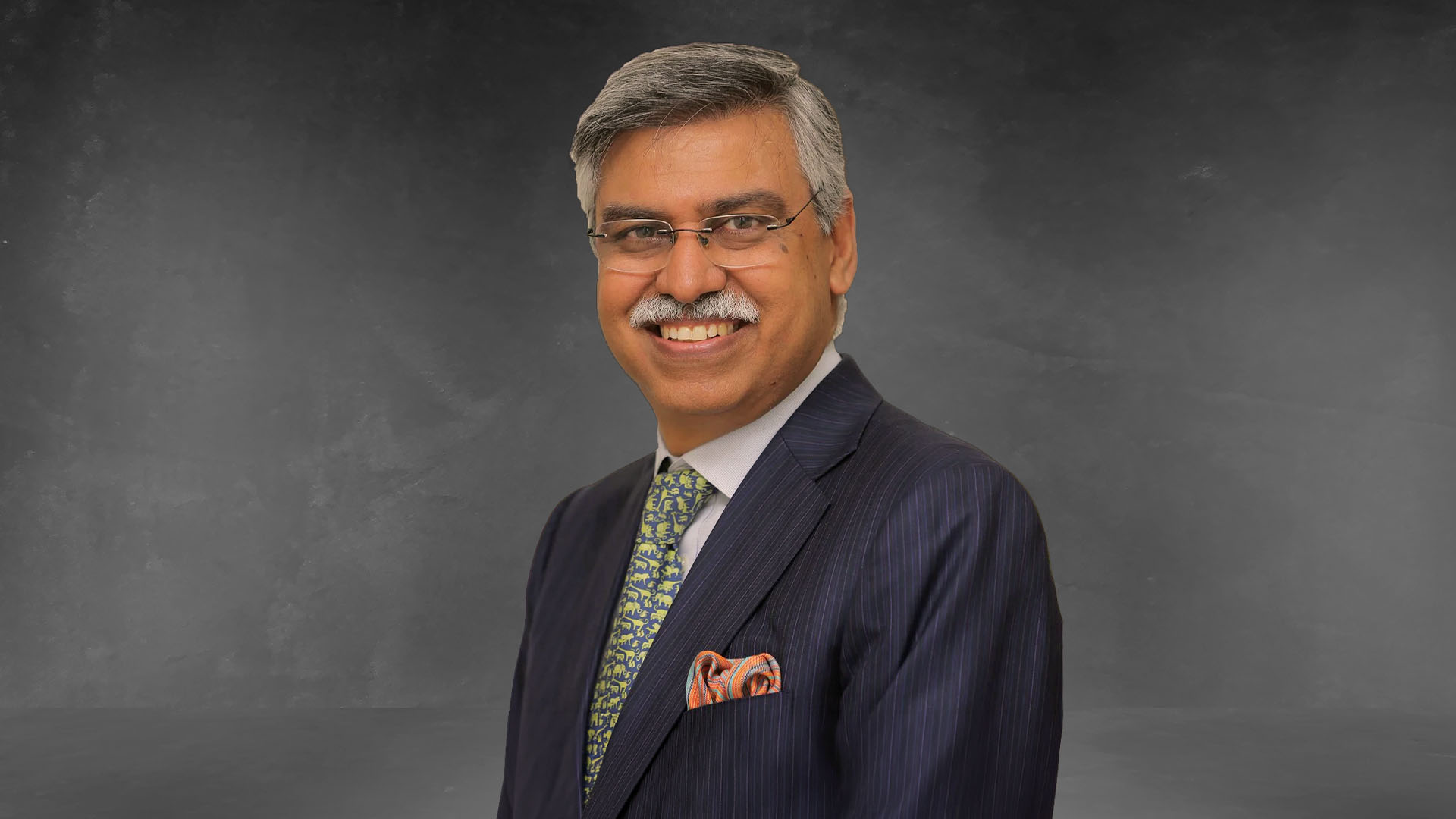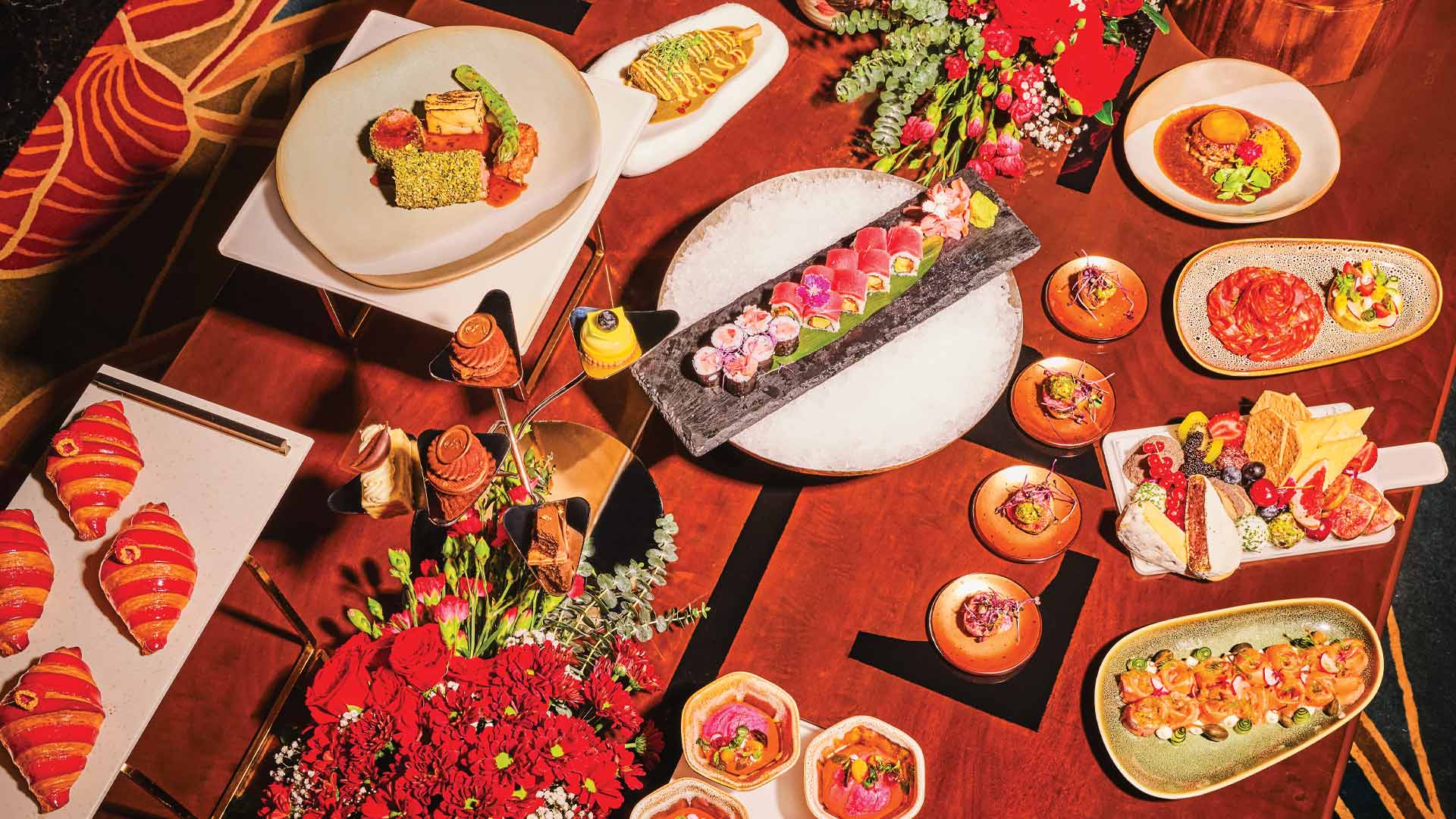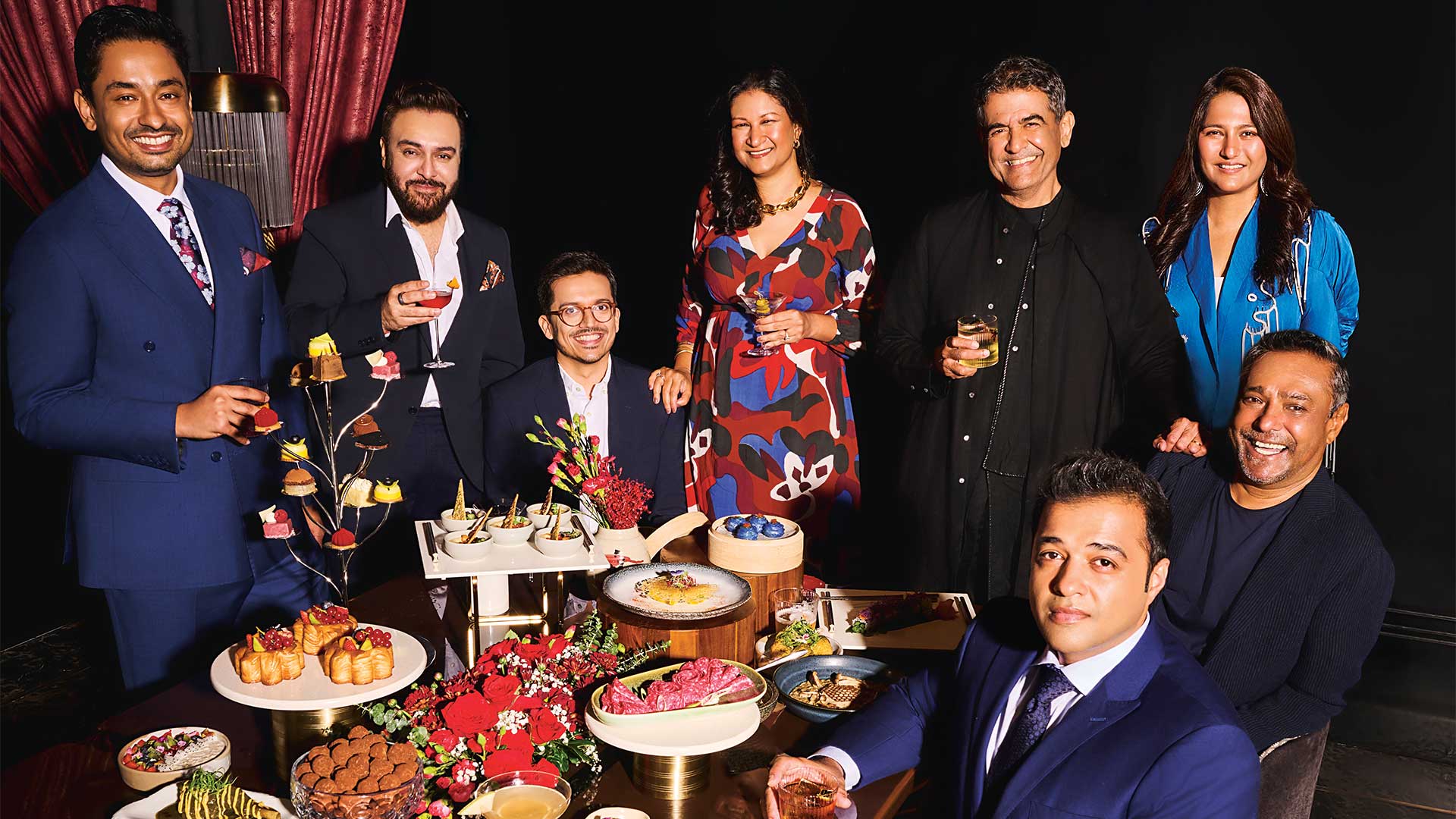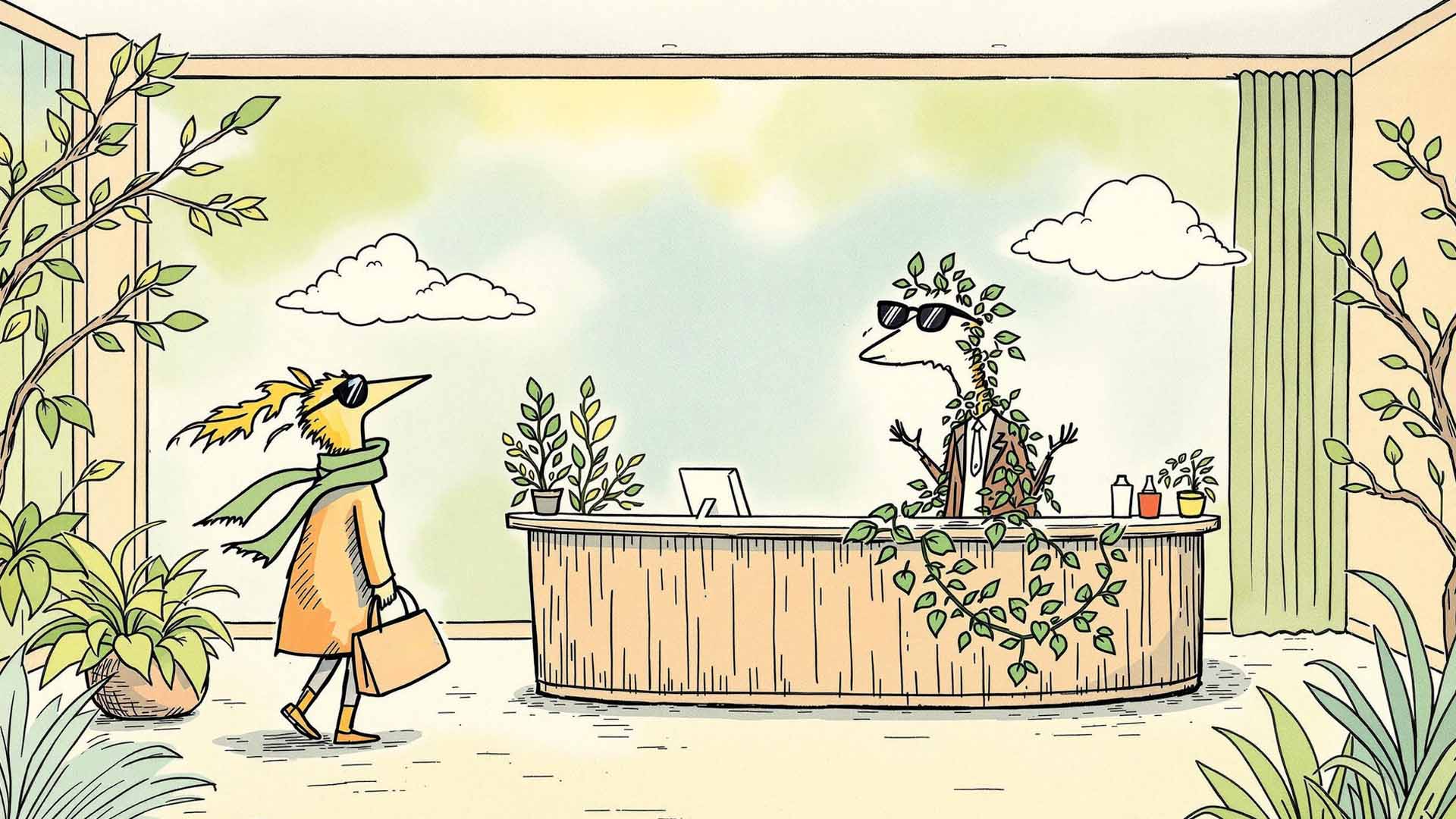Where Tradition Meets Tomorrow
GRT Hotels began its journey far from hospitality, but its leap into the hotel industry was no accident. Vikram Cotah, CEO of GRT Hotels & Resorts, shares how the 22 hotel-strong group is staying ahead in the hospitality game by championing sustainability, practicing inclusivity, and redefining luxury for the next generation.
By Rupali Sebastian
"Let me make one hotel"
It all started with this statement by an entrepreneur engaged in a thriving jewellery business, when he yielded to his passion for hospitality. That was in 1998, and the debut was the Grand by GRT Hotels in Chennai, “which became a benchmark for the brand with its striking 100-foot atrium, the city’s first indoor pool, and a spacious lobby,” says Vikram Cotah, CEO of GRT Hotels & Resorts. Following the success of their flagship property, GRT expanded its hospitality footprint by acquiring Chennai’s Radisson Group hotel and then the 40-acre ITDC Temple Bay resort in Mamallapuram, which was also rebranded as a Radisson. “Since then, we started acquiring hotels,” Cotah notes. Today, the group operates 22 hotels across southern India and has recently ventured internationally with a new project in the Maldives.
Their portfolio spans multiple segments, with luxury hotels and resorts franchised to Radisson for broader distribution; the Grand by GRT brand catering to the upper-upscale market in cities such as Chennai, Madurai, Kakinada, and Vijayawada; the Regency brand targeting the mid-market segment in the Tier II and Tier III locations; upscale leisure resorts under Great Trails by GRT Hotels focusing on exotic or unique locations; and lean luxury youthful hotels under Zibe by GRT Hotels catering to major metros and Tier II cities.

Vikram Cotah, CEO of GRT Hotels & Resorts.
Sights on Tier II
While Tier II and Tier III cities are now gaining attention for their hospitality potential, GRT Hotels & Resorts had the foresight to tap into these markets over a decade ago. “We had the vision to expand into Tier II cities almost 12 years back with our first hotel in Madurai,” shares Cotah. Today, the group has established a strong presence in most of Tamil Nadu’s Tier II cities, closely tied to the region’s rich cultural and spiritual heritage. “We connect all the temple towns,” says Cotah. “With Indian tourism heading towards spiritual tourism, we are in an advantageous position, connecting all spiritual tourism locations in Tamil Nadu with our hotels.” This focus on Tier II cities allows Cotah to offer ‘aspirational hospitality’ to its inhabitants who have largely migrated to these developing urban areas from rural locations. “We refer to this segment interchangeably as ‘mid-market’ or ‘affordable luxury’,” Cotah explains.
This blend of spiritual tourism and aspirational hospitality has allowed GRT Hotels to cement its place not just in Tamil Nadu but across the southern states of India, including Andhra Pradesh and Karnataka.

The elegant 41-room, pet-friendly GReaT Trails River View Resort Thanjavur by GRT Hotels is a tranquil property located on the banks of Vennar, a tributary of the Cauvery.
The evolving definition of luxury
Are luxury and sustainability opposing concepts? Cotah and GRT Hotels do not think so. They view them as two sides of the same coin. As Cotah explains, “The definition of luxury has changed. I’m a Gen-X, part of a generation that viewed luxury hotels as opulent—marble floors, gold-plated taps, large chandeliers, and expansive lobbies.” However, today’s definition of luxury has shifted for the new generations. “When you ask a millennial, Gen Z, or even a Gen Alpha what luxury is, they will tell you it is sustainability, personalised experiences, and local immersion. Luxury has taken a complete U-turn,” he notes.
GRT Hotels has embraced this change by embedding sustainability into its operations without sacrificing the guest experience. “We’ve gone completely plastic-free in our hotels. You walk into many new-age hotels, and they’re filled with plastic—plastic water bottles, shampoo kits, everything. But if you don’t have plastic, that’s luxury today,” says Cotah. The company’s latest innovation, the biophilia suites at Radisson Blu Hotels and Suites GRT Chennai—74 of them—epitomise this sustainable luxury blend. “They are designed with terrariums—complete ecosystems in bowls—with lights. We guarantee an AQI of 25, unheard of in cities like Delhi where it can go up to 500. We believe luxury today is about creating spaces that are not only eco-friendly but also offer an exclusive, rare experience,” Cotah affirms.

GReaT Trails Kodaikanal is nestled amidst a lush green landscape, its contours mimicking the surrounding terraced hillsides. It features 40 rooms within rustic-style architecture.
Sustainability is woven into GRT's DNA
Sustainability isn't just an initiative at GRT Hotels; it's embedded in their very essence. With ventures spanning renewable energy, organic farming, and a 750-acre coffee estate, GRT has long been committed to green practices. As Cotah puts it, “We invested in wind energy 15 years ago, and when solar came up, we moved into solar.”
The hotel group's sustainability journey in hospitality was sparked by a session at HICSA with Liz Ortiguera, Managing Director and Senior Advisor of the WTTC (World Travel & Tourism Council). Cotah recalls, “She spoke about the 12 hotel sustainability basics, which intrigued me. We went back, did research, and immediately rolled out changes.”
Their first move was eliminating plastic bottles, and setting up bottling plants to produce Zro water—zero carbon footprint water that doesn’t travel and is also RO-filtered. “We made our water 7.5 pH, alkaline and healthier, and the guests loved it,” Cotah notes. This effort quickly expanded to all properties, including bulk amenities that are sulfate and paraben-free, and the complete removal of single-use plastics from restaurants.
Cotah is proud of the speed with which these initiatives were embraced.“Within six months, we achieved so much. I shared this with Radisson's global sustainability manager, and she was surprised. Liz Ortiguera was amazed too.” The impact was significant enough to inspire Cotah to document GRT's green journey in a book, which will be free to independent hoteliers.
The group’s sustainability efforts don’t stop there. GRT Hotels generates much of its power through solar energy and offsets any grid-based fossil fuel usage with the renewable energy produced by GRT Group’s solar plants. “We’re electricity neutral,” Cotah says proudly.
Beyond GRT Hotels, Cotah is pushing for policy advocacy. As chairperson of the Southern Regional Tourism Council and anindependent director of the Tamil Nadu Tourism Development Corporation, he’s working to make minimum sustainability measures a requirement for hotel classification. “Sustainability should be at the core of hospitality,” he asserts.
This commitment has earned GRT Hotels certifications from SGS, a global benchmark for sustainability, quality, and integrity. “In eight months, we have achieved a lot, and it’s not just about ticking boxes. Our commitment to sustainability is real, and we’re proud to lead by example,” Cotah reflects.

Wellness is a significant theme woven into the fabric of GRT Hotels.
Organic food and locavore approach
At GRT Hotels, sustainability also extends to the food they serve, embracing a locavorian approach where local, seasonal produce plays a vital role. Cotah explains, “We balance things out as the produce is seasonal. Herbs and vegetables from our GRT farms are used in most of our hotels. We have a separate section in our buffets that highlights this farm-to-table concept.”
GRT's menus also cater to diverse tastes, offering luxury ingredients such as Norwegian salmon and Kobe beef. Cotah points out that they don’t shy away from informing guests about the environmental impact of such choices. “We mention the carbon emissions linked to these items, giving guests the choice to opt for more sustainable, plant-based alternatives or hyperlocal options,” he notes.
Their commitment to sustainable sourcing is also evident in their work with local farmers and fishermen. “We ensure that the food we buy is sustainably and ethically grown or fished. We work directly with farmers and fishermen, ensuring we source food within 100kms,” Cotah explains. This philosophy underlines their dedication to creating a more conscious, eco-friendly dining experience across their hotels.

Radisson Blu Hotels and Suites GRT Chennai recently underwent a renovation that blends technology with nature.
Community engagement
Sourcing hyperlocal food is part of building connections with local communities, a fundamental aspect of their philosophy. Cotah shares, “In Mamallapuram, for instance, when guests seek entertainment, we invite local artists to perform traditional arts like Poikkal Kuthirai Attam (horse dance) and Karagattam, where they balance pots on their heads while dancing.”
Beyond traditional performances, GRT collaborates with local naturalists in scenic areas like Yercaud and Kodaikanal. “These naturalists possess intimate knowledge of the local flora and fauna. They can identify specific trees, plants, butterflies, and birds that guests might encounter during their stay. Guests truly appreciate this authentic experience,” Cotah explains. By integrating local culture and expertise into their offerings, GRT Hotels enriches the guest experience and contributes to the preservation of traditional art forms and knowledge within the communities they operate.
Loyalty program goes green
To engage guests in a deeper manner in its sustainability endeavours, the hotel chain is gearing up to launch an innovative sustainability-focused loyalty programme called the Caco Club, short for ‘Carbon Conscious Club’. Cotah describes it as a way for guests to “live sustainably in the hotel,” with incentives that reward eco-friendly behaviour. Guests will earn Caco Coins—akin to cryptocurrency—when they take conscious steps like reusing linen, adjusting air conditioning temperatures to 24 or 27 degrees, or using natural sunlight. “We’re making guests part of the sustainable journey,” Cotah explains, adding that these Caco Coins can be traded or used to offset stays, turning sustainability into a win-win for both the hotel and its environmentally conscious guests.

A standout feature of this update is the terrariums, which also serve as light fixtures in the biophilia suites.
Bridging gaps for women and LGBTQ+ communities
The hospitality sector often overlooks both women and the third gender. In India, women represent only 12% of the hospitality workforce. To address this, GRT Hotels has pledged, “For every four men, we should have at least one woman in our workforce within a year.” This initiative aims to increase the representation of women on the hotel teams, including in leadership roles. Programs such as Women on Workforce (WOW) aim to reintegrate women who have taken career breaks to raise families, offering support through crèches and other resources. “During this process, we realised that the third gender is also an overlooked community. So we took it upon ourselves to encourage the third gender and mainstream them,” reveals Cotah, highlighting their mentorship of Namitha Marimuthu, a transwoman and finalist of Miss Universe 2023 from Chennai. New hotels feature gender-neutral bathrooms in both public and employee areas, and staff members from the community have been welcomed into the team.
The commitment extends to supporting other LGBTQ+ initiatives as well. While sensitising younger staff is more straightforward, Cotah acknowledges that the challenge lies in changing the mindsets of the older generation. “We had to conduct numerous sensitisation workshops,” he explains, noting that existing staff members have been paired with new hires as buddies to facilitate the transition.

Zibe is GRT Hotels' lean luxury brand catering to major metros and Tier II cities.
Cultivating a culture of wellness
Wellness is a significant theme woven into the fabric of GRT Hotels. Their journey began over 12 years ago with the launch of in-house spas, inspired by a month-long training experience in Thailand. This evolution led to the establishment of the Bodhi Spa, which has now transformed into Bodhi Prana Spa. These wellness havens combine diverse therapies, offering a menu spanning Western treatments such as Swedish massages, Ayurvedic therapies, Tibetan medicine, and cutting-edge biohacking techniques such as red light therapy, cryotherapy, and sleep therapy.
Nutrition is also a focus, with thoughtfully curated menus that promote well-being, featuring options like Vedic, plant-based, vegan, and gluten-free selections. Yoga studios are integrated into the hotel experience, with state-of-the-art equipment provided by Precor in a newly renovated 3,000 sq. ft. gym at Radisson Chennai. This gym features a cardio section that uses AI to track previous workouts, alongside areas for strength training and CrossFit. Curated treks and trails offer guests the chance to explore their surroundings, enhancing the overall wellness journey.
The GReaT (a pun on GRT) branding encompasses GReaT sleep, GReaT touch, GReaT nutrition, and GReaT movement, implemented wherever possible across properties. While select service hotels like Zibe may not feature spas, the wellness philosophy remains consistent. GReaT Social initiatives are grounded in the principles of Blue Zones, where longevity is celebrated.
All hotels embrace a pet-friendly and smoke-free policy—a bold decision that faced initial scepticism. “People claimed guests would leave,” Cotah remembers. “But as a policy towards well-being, we became smoke-free in all our hotels. It’s worked out well because I think every guest has appreciated it.”
These initiatives reflect the group’s tagline, ‘Promise of More.’ In the context of a Radisson-branded property, this means a stronger commitment to luxury, while Zibe represents a promise of smart stays. “We are not competing on price; we are competing on value,” Cotah asserts, emphasising the intention to provide guests with more meaningful experiences.

The first move in GRT Hotels & Resorts's sustainability journey was the complete removal of single-use plastics from restaurants.
Forging successful alliances
GRT's partnership with Radisson has flourished for 26 years, evolving alongside the brand in India. Radisson provides international exposure, brand equity, training, and adherence to global standards, enhancing operational practices like housekeeping techniques. Their established distribution networks offer significant advantages in collaborating with large OTAs and PMCs for revenue management pricing. In return, GRT brings invaluable local market knowledge and operational excellence as both owner and operator. This synergy has proven beneficial since GRT took over Radisson Chennai in 2001, the property’s inception dating back to 1998.
Over the years, GRT has rebranded Temple Bay Mamallapuram as Radisson Blu Resort Temple Bay Mamallapuram and transformed a resort in Pondicherry into the only internationally branded resort in the area, now known as Radisson Resort Pondicherry Bay. The Radisson Bengaluru City Centre, situated across from Ulsoor Lake, adds to this impressive portfolio. Cotah states, “We work with Radisson as a franchise, and they collaborate closely with us. We share a great synergy and leverage each other’s strengths. What GRT brings to the table is operational excellence; we have skin in the game as both owners and operators.”
There is a clear eagerness to explore further partnerships. “At the end of the day, we are asset owners,” Cotah remarks, underscoring GRT’s proactive approach. The company has signed a Memorandum of Understanding with Marriott for a Luxury Collection property in the Maldives and is in discussions with another hotel brand for a project in Hyderabad. Cotah adds, “We are also exploring opportunities on the 750-acre coffee plantation located 40kms from Kodaikanal. There’s considerable potential for growth.”

Radisson Blu Resort Temple Bay Mamallapuram affords breathtaking views of the Bay of Bengal. The award-winning property is located just steps away from the Shore Temple.
Embracing the digital future
The hospitality industry today is defined by three key themes: sustainability, well-being, and the rapid acceleration of digital transformation, particularly post-COVID. Cotah explains, “COVID fast-tracked digital transformation. What we would have experienced in 2034, we are already experiencing in 2024.” GRT Hotels has fully embraced this shift, integrating technologies such as AI, NFC, augmented reality (AR), virtual reality (VR), and IoT across its properties.
At the forefront of this transformation is the concept of IoE (Internet of Everything). “We are working towards a future where people, data, and processes converge onto one platform,” says Cotah. This not only enhances operational efficiency but also improves guest experiences. GRT Hotels is pioneering the use of these technologies, making them a key differentiator in their offerings.
One innovative example is the AR map at Radisson Blu Hotels and Suites GRT Chennai, which allows guests to navigate the property on their mobile devices in real-time. “Traditionally, a staff member would escort the guest to their room and explain the facilities. Now, they can access the AR map, which positions them wherever they are and guides them to any part of the hotel with the touch of a button,” he explains. This feature offers guests greater autonomy and caters to the preferences of Gen Z and millennials, who value choosing when and how they interact with people.
However, GRT Hotels is mindful of where and how technology is deployed. “While our larger properties such as Radisson Chennai and Grand GRT have digital tabs in rooms that can do everything for guests, in our Tier II city hotels like Regency Madurai, introducing such technology could be intimidating for older or less tech-savvy guests,” Cotah shares.
The approach is clear: use technology as an enabler, not as an overwhelming force. “We’re very careful about ensuring that technology doesn’t intimidate or scare guests away. It’s about finding the right balance—using tech where it enhances the experience, but always maintaining the human touch where it’s needed.”
Navigating the challenges of hospitality
Overtourism stands out as a pressing challenge in India’s hospitality landscape. “It will not only affect the planet and the ecosystem, but it can also diminish the overall guest experience. Imagine seeking a peaceful holiday with family, only to be surrounded by crowds and noise,” Cotah explains. While the surge in domestic tourism reflects a growing interest in travel, it predominantly favours traditional leisure hotspots and metro cities, leaving lesser-known locations overlooked due to insufficient infrastructure and limited access to quality accommodations. While established leisure destinations offer quicker returns on investment due to their popularity, developing new destinations requires time and resources. The exploration of lesser-known areas, such as the 750-acre estate near Kodaikanal, and places like Yellagiri and Yercaud, Cotah asserts, represents a proactive approach to mitigate this issue.
Technology also presents a dual-edged sword. The rise of AI in the hospitality sector is undeniable. However, this shift raises concerns about the essence of hospitality. Emphasising the need to balance innovation with personal interaction, he notes that technology should enhance productivity and service without compromising the human touch, so essential to hospitality.
In a landscape where hospitality faces numerous challenges, including global competition and changing consumer preferences, GRT Hotels & Resorts is committed to staying ahead by prioritising sustainability, encouraging responsible wellbeing, embracing technology, and providing memorable experiences rooted in local culture. As Cotah puts it, “We have a strong purpose to make responsible tourism the future for the country. And within that future, I see GRT Hotels amongst India’s top three boutique hotels.”


























